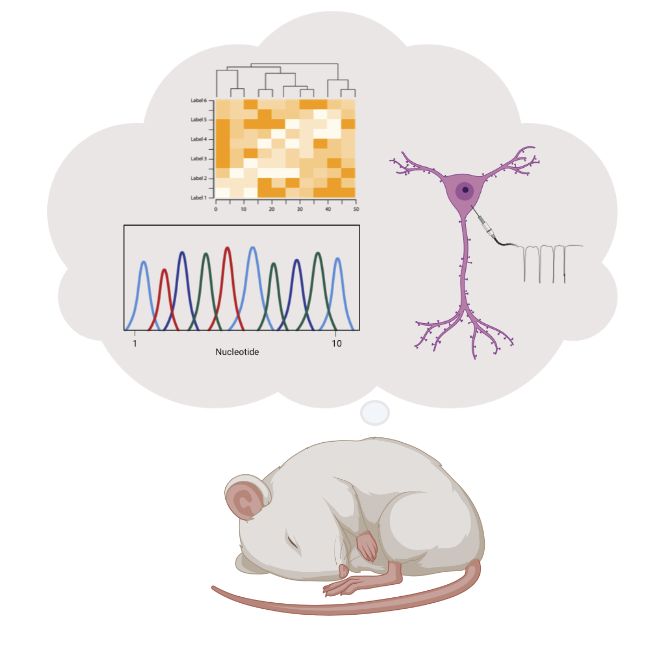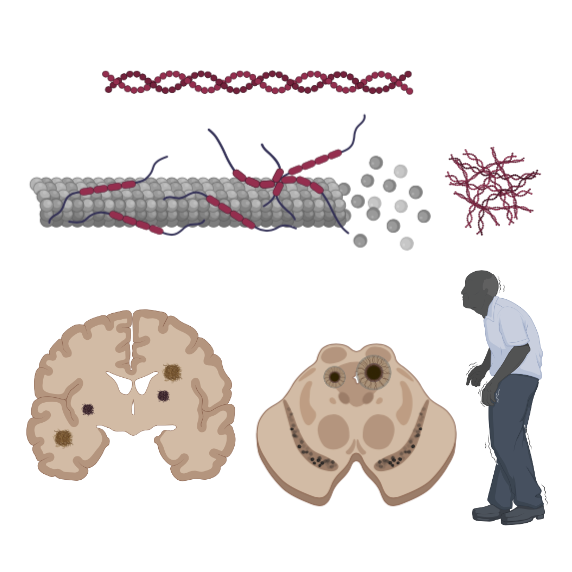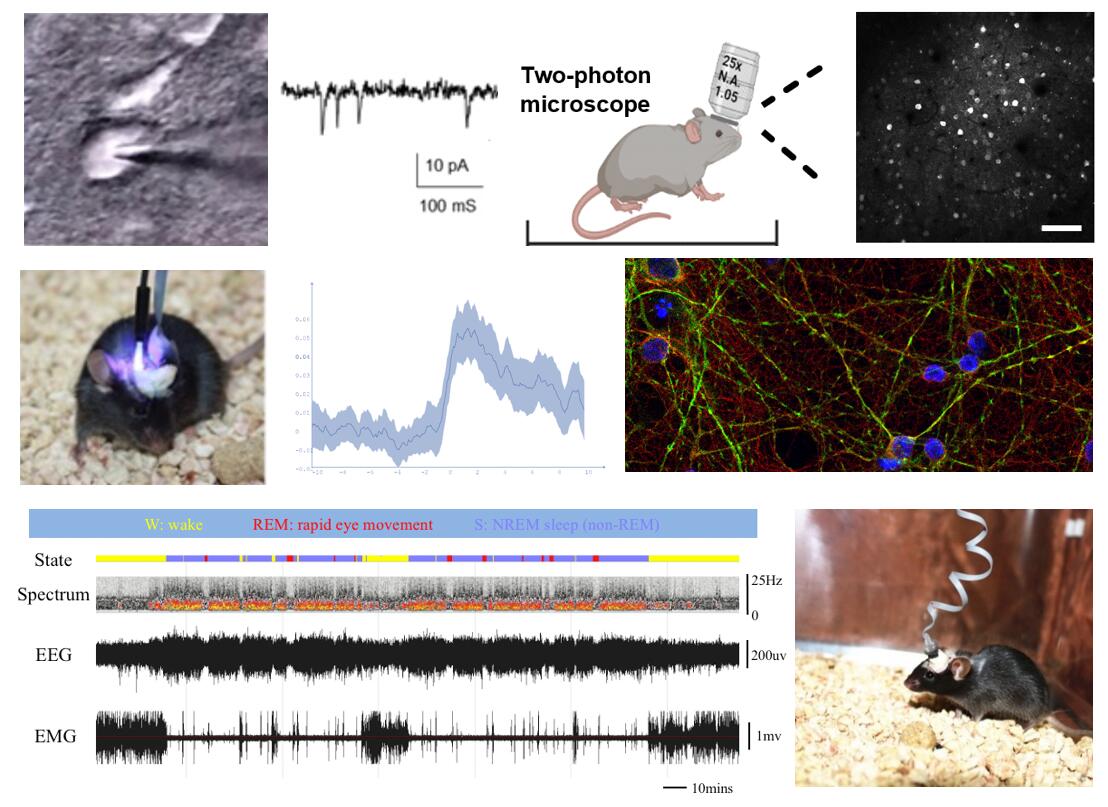HeLab is interested in understanding how neural and brain function is regulated in the normal brain, and how they are dysregulated in the diseased brain. We are in particularly curious about the role of sleep and its correlation with our brain fitness, and the neuronal dysfunction associated with the early stage of neurodegeneration.
Brain function of sleep
Sleep is a universally conserved behavior that occupies 1/3 of our lives. Empirical as well as many scientific evidences highlight the importance of sleep for maintaining our physical health, especially the brain performance. How sleep fulfills these duties remains mystery. By using multidisciplinary approaches including in vivo and ex vivo electrophysiology and functional imaging, behavioral analysis and molecular biology methods, etc, our lab studies this question by focusing on understanding how sleep regulates the functional properties of different neuronal cell types, circuits, and brain region-specific cognitive functions. At the meanwhile, we are also studying how sleep may regulate molecules critical for brain immunity.

Neural deficits and the underlying mechanism associated with early stage of ND
Neurodegenerative Diseases such as Alzheimer’s disease (AD) and Parkinson’s disease (PD) et al., are deleterious that mostly lack effective treatment. It becomes urgent to study the neural deficit and mechanism during the early stage of ND, which will greatly facilitate the early diagnosis as well as promote the development of more efficient intervention and treatment. To investigate this question, we focus on 2 main aspects. First of all, sleep is a potent risk factor for neurodegenerative disorders including AD. We are interested in understanding the relationship between early sleep disturbance and neurodegeneration. Secondly, we are using inducible PD mouse model that allows closed monitoring of the disease progression to examine the brain deficits and the underlying mechanisms occurs early during disease progression.

